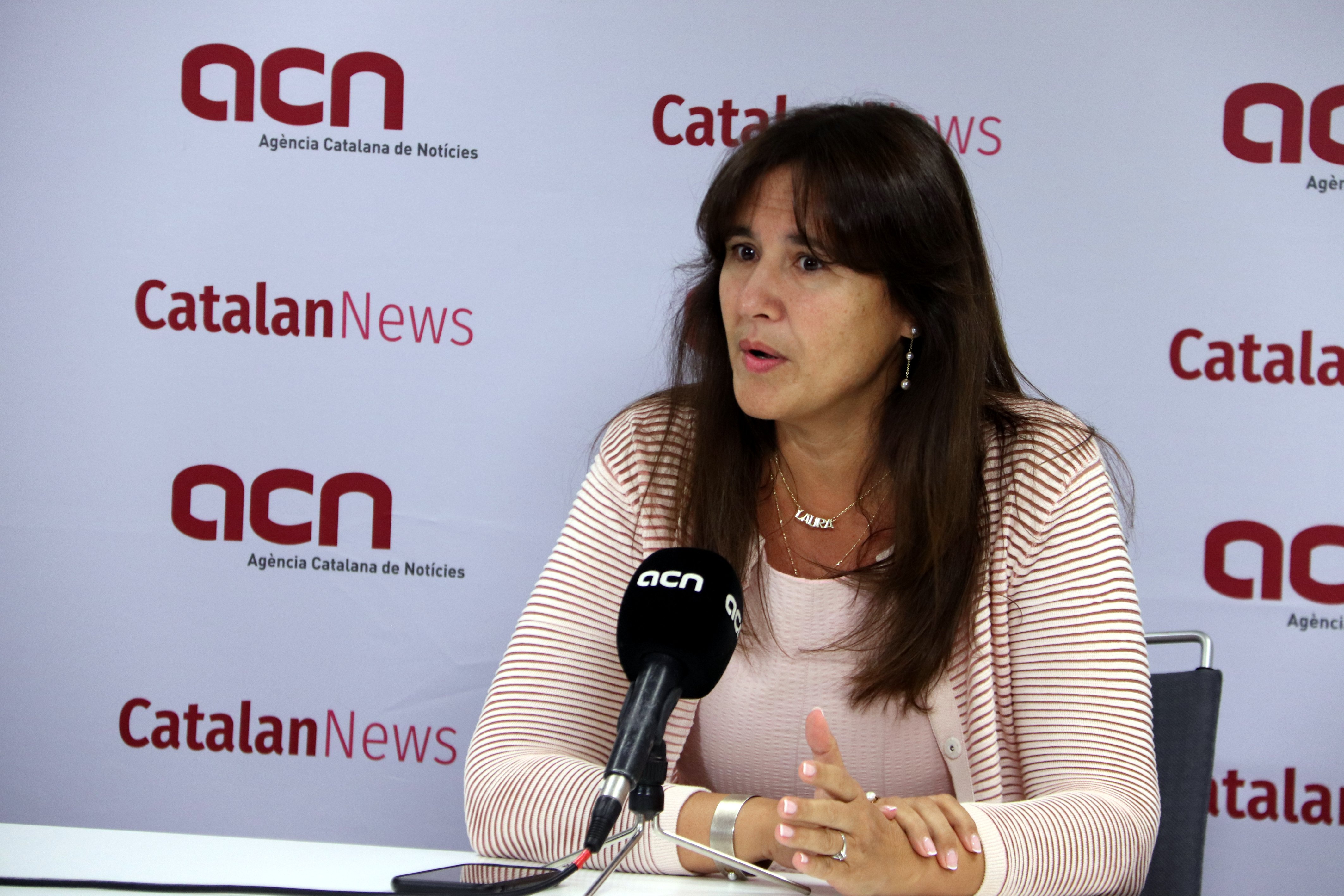Not admitted. The Catalan High Court (TSJC) announced this Thursday that it has rejected the recusal of the TSJC president, Jesús Maria Barrientos, which had been called for by the suspended speaker of the Parliament of Catalonia, Laura Borràs, to remove the judge from taking part in the trial that she has to face as former director of the public cultural body Institute of Catalan Letters (ILC). Borràs is accused of the crimes of abuse of authority and document falsification for allegedly having granted contracts for work on the body's website to a friend, Isaías Herrero. The public prosecutor is asking for 6 years¡ prison and a 21-year ban on holding public office for Borràs, who is also president of the pro-independence Junts party. The defence in the contracts case, conducted by lawyer Gonzalo Boye, presented the request for recusal on November 18th, four days after it was announced that Barrientos would occupy both the positions of presiding judge and reporting judge in the three-magistrate court that will try Borràs. The other two judges are María Jesús Manzano and Fernado Lacaba. In fact, Lacaba is the judge who investigated the call for recusal of his colleague Barrientos, and he dismissed the claim by assuring that Borràs is making "generic accusations" about the judge's lack of impartiality, and ruled out that she suffers from "political persecution". In another resolution from last November, the dates in which the Borràs trial is to be held were given: from February 10th to March 1st, 2023.
In the 10-page resolution dated this Thursday, judge Lacaba affirms that Laura Borràs has not provided evidence of this supposed enmity of judge Barrientos towards her, which would be a reason for recusal. He adds that objective and subjective impartiality "has not been compromised" by the public statements Barrientos made as president of the TSJC. Lacaba also comments that judges must be able to exercise freedom of expression as citizens. And given that Barrientos occupies a governmental position in justice, (aside from his jurisdictional one), he can pronounce on judicial and court aspects that affect the community.
As an exceptional action, a Catalan High Court chamber accepted, last summer, the recusal of judge Barrientos from the 2019 trial of the Bureau of the Catalan Parliament, as argued by former MP Josep Costa. And, more recently, the Supreme Court also ordered a repeat of the trial of the 2017 Bureau, presided over by Carme Forcadell, due to resolutions that Barrientos and judge Carlos Ramos admitted to the procedure with an appearance that was lacking in impartiality.
Political persecution, denied
In addition, the judge Fernando Lacaba takes a very critical stand and affirms that "an effort must be made to clarify what the recusal argument is which is actually invoked", a fact - he indicates - that contradicts the rule, since the party must express in a specific and clear way the legal motive and the reasons" for the recusal, which "is not fulfilled and limits itself to citing a range of possibly applicable motives and that the argument must arise from the mixture of several motives, in this case - indicates Lacaba - there are "4 and they have little relation to one another".
The judge also declares that the argument invoked for "the political persecution of the defendant and the absolute irregularity of the trial procedure, can be argued in the trial when the legitimate right to defence is exercised". In addition, he specifies that the controversy over the expert witness brought to the case by Borràs will be debated as part of the trial. In conclusion, the investigator maintains that Borràs "does not specify the existence of a personal interest in the case on the part of the TSJC president", nor that Barrientos has held a position outside of his jurisdictional exercise.
Because of all this, judge Lacaba, following the considerations of the Constitutional Court, concludes that he does not accept the recusal because "it is based on arguments whose invocation is arbitrary or manifestly unfounded and are, prima facie, discardable".

